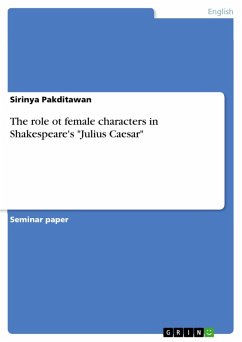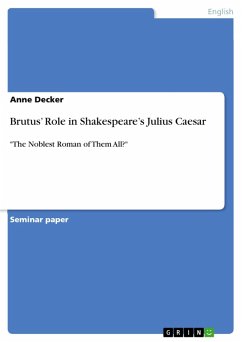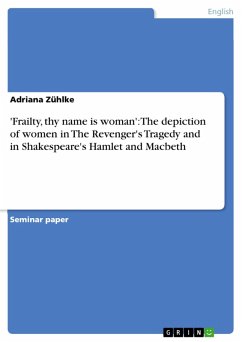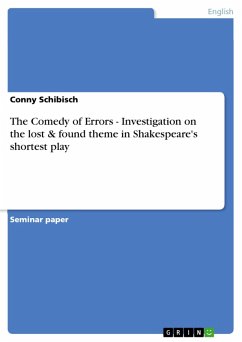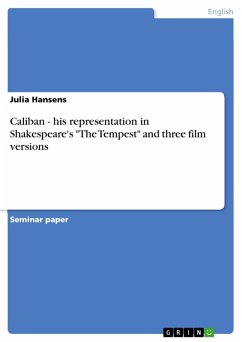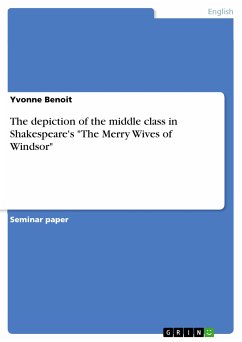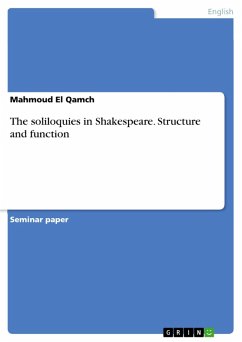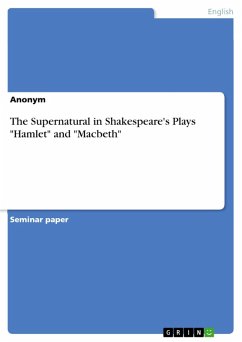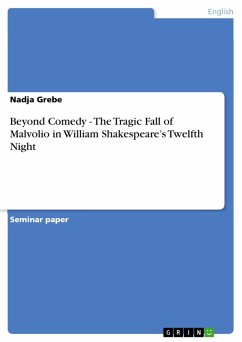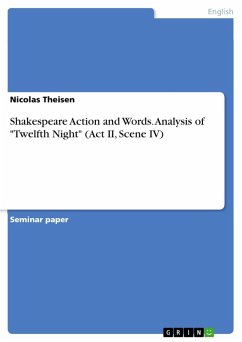
"Remember March, the Ides of March remember" - Moral and political ambiguities of the assassination of Julius Caesar (eBook, PDF)

PAYBACK Punkte
0 °P sammeln!
Seminar paper from the year 2001 in the subject English Language and Literature Studies - Literature, grade: 1 (A), LMU Munich (Institute for English Philology), course: Hauptseminar zur Exkursion: Shakespeare: Hamlet, King John, Julius Caesar, Twelfth Night, language: English, abstract: The assassination of Julius Caesar was probably one of those few moments that literally changed the course of history. Many historians agree that Caesar might have been just another military dictator such as the generals Sulla and Marius, who are, in comparison with Caesar, unknown; a successful general, but i...
Seminar paper from the year 2001 in the subject English Language and Literature Studies - Literature, grade: 1 (A), LMU Munich (Institute for English Philology), course: Hauptseminar zur Exkursion: Shakespeare: Hamlet, King John, Julius Caesar, Twelfth Night, language: English, abstract: The assassination of Julius Caesar was probably one of those few moments that literally changed the course of history. Many historians agree that Caesar might have been just another military dictator such as the generals Sulla and Marius, who are, in comparison with Caesar, unknown; a successful general, but incompetent at reforming the Roman res publica1 . The assassination of the title character is also the central moment in Shakespeare's drama "Julius Caesar". His death causes the change of scene (away from Rome) and the change from a relatively stable res publica to civil war. The play presents the major protagonists of these events: Casca, Cassius, Brutus, Caesar, Marc Antony and, to a lesser degree, the Roman public. The Roman people are a background before which the main characters act and by whomthey (i.e. the people) are manipulated more or less successfully. The reasons the assassins and their antagonists have, pretend to have or do not have for what they do become apparent in what they tell the man-in-the-street. Occasionally, when we hear them talk to a close friend or to themselves, we find matters are not as simple as the public is made to believe. Brutus has doubts about the attack, Cassius' aim is not the welfare of the res publica, Marc Antony fakes friendship with the conspirators. We see that there are certain political as well as moral ambiguities in the assassination of Julius Caesar as Shakespeare presents it. In this paper, we will first look at the Roman people as the background, then examine the character and motives of Casca, Cassius and finally Brutus. [...] 1 I use the expression "res publica" because its English equivalent, the "common-wealth", has other connotations; I also tried to avoid the word "state".
Dieser Download kann aus rechtlichen Gründen nur mit Rechnungsadresse in A, B, BG, CY, CZ, D, DK, EW, E, FIN, F, GR, HR, H, IRL, I, LT, L, LR, M, NL, PL, P, R, S, SLO, SK ausgeliefert werden.




